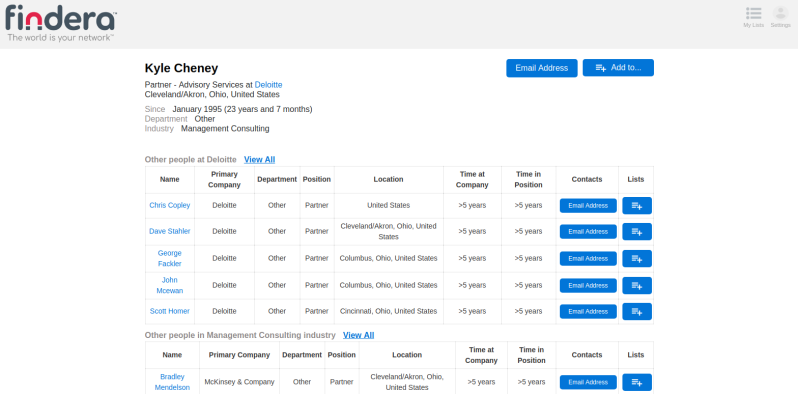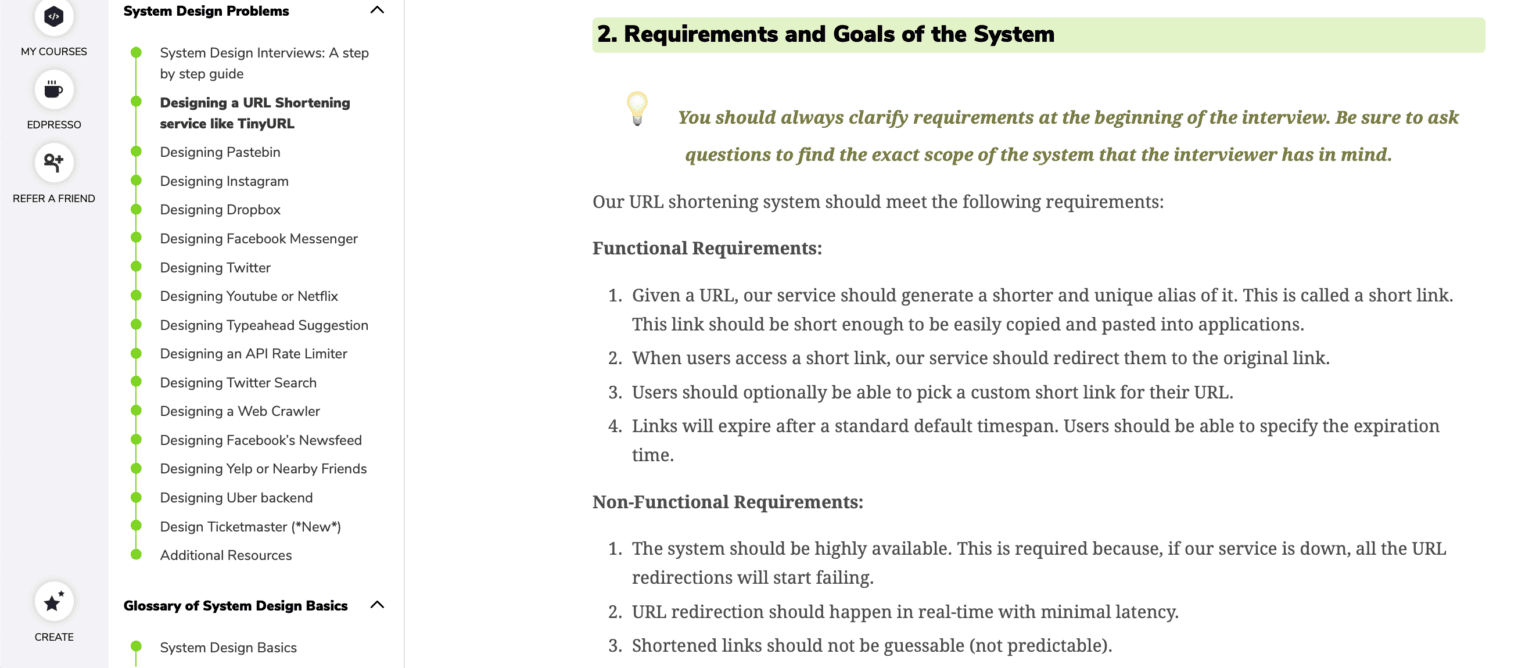Table Of Content

In an average SDI, most beginner- to mid-level candidates will not mention security when diving deeper into their high-level design. Security in a System Design context is important, but especially if you’re applying for a security role. Ensuring the system is healthy (and virtually impregnable) is only possible if you can acutely understand how it all works together. For example, when choosing where to go in-depth, you should focus on machine learning processes or how to design an AI-dependent system to be as compute-efficient as possible.
Grokking Modern System Design Interview for Engineers & Managers
Load balancing is a critical aspect of system design, especially in distributed systems. If the technical terminology in the last two statements is unfamiliar to you and you have an interview scheduled in less than a month, you should enroll in the course immediately soon. It will immediately familiarize you with the principles of developing large-scale distributed systems. At Big tech companies like FAANG engineering interviews, system design rounds have been a common occurrence. When Facebook’s stock began to rise, and everyone in Silicon Valley wanted to work there, there were no resources available to prepare for the design round. At the end of the building blocks section, you’ll be introduced to the RESHADED approach to modern system design.
Unlock Your Future: Top 10 FREE Google Courses for Career Mastery in 2024 — Your Ultimate Guide to… - Medium
Unlock Your Future: Top 10 FREE Google Courses for Career Mastery in 2024 — Your Ultimate Guide to….
Posted: Thu, 04 Jan 2024 08:00:00 GMT [source]
Common System Design Interview Questions
Additionally, the subscription model allows you to access a wide range of courses and resources, further enhancing the value you receive. There are several other courses available in the market that claim to prepare you for system design interviews. Some popular alternatives include System Design Primer on GitHub, Designing Data-Intensive Applications by Martin Kleppmann, and the System Design Interview – An Insider's Guide by Alex Xu.
Grokking the System Design Interview The #1 Online Course
Consistency ensures that data remains in sync across multiple instances of the system. It involves designing the system in a way that ensures that updates to data are propagated correctly and consistently across all nodes or replicas of the system. It provides a step-by-step approach to mastering System Design Interviews. Grokking the System Design Interview is available on the Design Gurus platform, which offers a subscription-based as well as lifetime access pricing model. You can access the course by subscribing to the platform for $12.99 per month or one time payment of $59 for lifetime access.

Grokking the System Design Interview: A Comprehensive Guide
Unfortunately, most engineers struggle with the system design interview (SDI), partly because of their lack of experience in developing large-scale systems and partly because of the unstructured nature of SDIs. Even engineers who’ve some experience building such systems aren't comfortable with these interviews, mainly due to the open-ended nature of design problems that don't have a standard answer. Upon completion of this course, you will be well-prepared to tackle system design interviews with confidence and demonstrate your ability to design and optimize large-scale distributed systems. One common system design interview question involves designing a social media feed system. In this case, you would need to consider the scalability of the system to handle a large number of users and their posts.
Learning System Design can also improve your coding sense and coding skill to convert a real world requirement into code. That’s all in this review of Grokking the System Design Interview Course. This is no doubt that it is one of best online course to prepare for System design interview. I think, Grokking the System Design course is totally worth of its price.
Consistency & Consensus for System Design Interview (4): implementing causality - Medium
Consistency & Consensus for System Design Interview ( : implementing causality.
Posted: Sun, 03 Sep 2023 07:00:00 GMT [source]

The mentors educate and advise you based on their own personal experiences. If you are thinking to join this course but not sure, then read on, I have shared my thoughts and reviewed the course on its merit of what it offers for the price it charged and time it takes.
These include database design, distributed systems, caching, data partitioning, load balancing, and system architecture patterns. Familiarize yourself with these topics and ensure you understand the underlying principles. When faced with a system design question, start by clarifying and understanding the requirements. Break down the problem into smaller components and prioritize the most critical aspects. Propose a high-level design, considering scalability, fault tolerance, data consistency, and availability. Lastly, communicate your design clearly and explain your design decisions.
They are not only concerned with the longevity of the software system itself, but how it can be successful over time, even in the event of unforeseen problems. During the analysis phase, it is important to identify the key components of the system and how they interact with each other. For example, in the social media feed system, you would need to consider the user profiles, posts, and the algorithm used to determine the order of posts in the feed.
In conclusion, system design interviews are essential in the tech industry as they evaluate a candidate's ability to design robust and scalable software systems. Employers value system design skills for their impact on performance, cost-efficiency, and problem-solving capabilities. Additionally, these interviews also assess a candidate's communication skills, ensuring they can effectively collaborate with various stakeholders. By understanding the importance of system design interviews, candidates can better prepare themselves for these assessments and showcase their expertise in designing complex and efficient systems. The system design interview is a critical part of the hiring process at top software companies, where candidates are expected to demonstrate their ability to design and implement complex software systems. This interview is meant to test a candidate's problem-solving skills, technical knowledge, and communication abilities.
Actively listen to the interviewer and ask clarifying questions to ensure a mutual understanding. Remember, effective communication not only showcases your technical skills but also demonstrates your ability to collaborate and work in a team. When designing a system, it's essential to consider various key concepts such as scalability, fault tolerance, availability, and consistency. Scalability refers to the system's ability to handle an increasing load without sacrificing performance.
This is particularly important in today's digital age, where online platforms and applications need to support millions, if not billions, of users. Without effective system design, these systems would crumble under the weight of user demands. At that time I come across Grokking the System Design Interview Course on Educative by Design Guru and immediately fell in love with it.
Grokking System Design Fundamentals is designed to equip software engineers with the essential knowledge and skills required to design large complex systems. This course covers a wide range of key concepts, including caching, load balancing, data partitioning, proxy servers, and more, that are crucial for designing efficient, scalable, and reliable distributed systems. By enrolling in this course, you will gain a solid understanding of the core principles behind designing large-scale systems, as well as practical strategies for tackling complex system design problems.


No comments:
Post a Comment